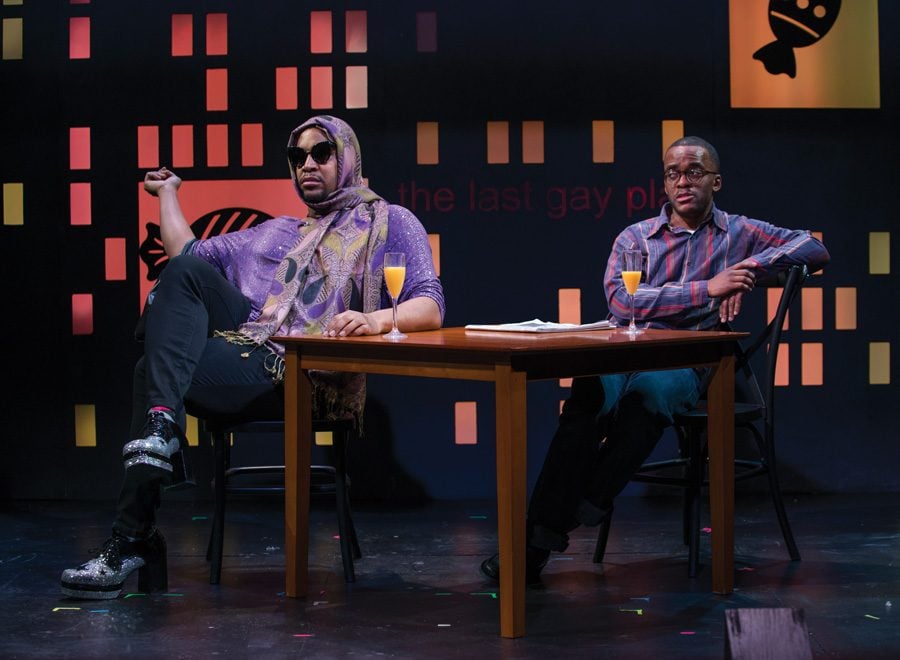‘Bootycandy,’ starring a Northwestern alumnus, explores a man’s journey to understanding his identity
Osiris Khepera and alumnus Travis Turner (Communication ’05) are seated across from each other in “Bootycandy.” Turner said he hopes the show provokes the audience to discuss the issues presented within the play.
February 16, 2017
Through late-night conversations at Willard Residential College, Travis Turner (Communication ’05) said he began understanding various parts of his identity.
“(Northwestern) is where I felt like I could actually take ownership of who I really was and speak to it and acknowledge it,” said Turner, who identifies as black and gay.
Turner said he channels these memories to connect with his character in the Chicago play “Bootycandy,” which tells the story of a black and gay man. The all-Chicago cast performs at Windy City Playhouse, a not-for-profit Equity theater in the city, through April 15.
“Bootycandy” is loosely based off the experiences of the show’s playwright and director, Robert O’Hara, who grew up in Cincinnati and later moved to New York. Composed of several 10-minute vignettes in non-chronological order, the story revolves around the men Sutter, Turner’s character, meets in his life and how they contribute to building his identity.
Turner said he can relate to his character’s experiences as an adolescent, growing up with parents who struggled to understand his sexuality. In a memorable scene at the top of Act II, Sutter tells his parents about being followed by an older man on his way back from school. Instead of comforting their alarmed son, the parents “police his actions,” telling him how he should present himself, he said.
“Parents don’t have quite the language or the insight to really have that conversation (about sexualities) with you,” he said.
Evelyn Jacoby (Communication ’13), Windy City’s managing director, said that particular scene shows how society fails to let people be true to who they are. It is a heartbreaking moment for Sutter — who is looking for protection and support from his parents — because he is told that his identity, not society, is the problem, she said.
Due to the lack of support in finding and building their identities, Turner said gay people often have to teach themselves “how to be gay.” Unlike many, however, he said he was lucky enough to find a group of supportive friends during his freshman year of college who were also on a journey to self-discovery.
Though “Bootycandy” focuses on Sutter’s journey of finding himself, it is also a satirical piece that pokes fun at the world surrounding him. Still, Osiris Khepera, who plays four different roles in the play, said satire can be a powerful tool in analyzing the real world.
“The truest thing about satire to me is that it reflects life more realistically than a true-to-life drama in some cases, or even drastic comedy, because it points a finger to things people find uncomfortable and forces you to look at them through a lens you weren’t expecting to have to look through,” he said.
Because of the way the show bluntly presents provocative topics, people often walk out in the middle of the show, he said. But Khepera said the audience should expect no less from a show that uses “Bootycandy,” a euphemism for penis in the play, as the title.
The purpose of the show is to make the audience stop for a moment and think, Turner said. He said he hopes the audience is “provoked” and feels the need to hold a conversation about the themes presented in the show. The work was not easy to produce or to write, and it likewise shouldn’t be easy to process, he said.
Whether the audience laughs along or leaves halfway through, Khepera said nobody departs with a sense of indifference.
“Something about this play is going to punch you in the guts,” he said. “You don’t walk out of there unchanged.”
Email: [email protected]
Twitter: @ck_525












